Former diplomat urges Iran to appoint envoy to mend ties with US
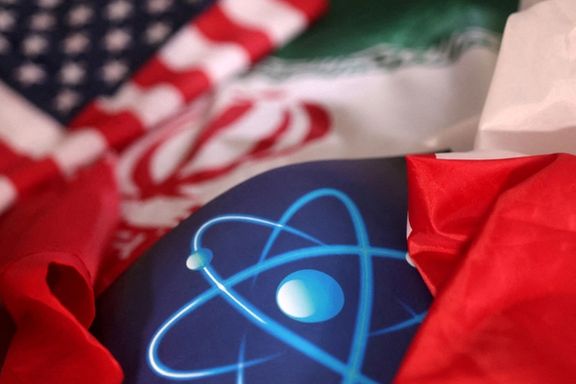
A former Iranian diplomat has suggested that Tehran appoint a special representative to engage with the Trump administration and work toward resolving disputes with Washington.

A former Iranian diplomat has suggested that Tehran appoint a special representative to engage with the Trump administration and work toward resolving disputes with Washington.
Speaking to the Faraz Daily website in Tehran, Nosratollah Tajik noted that the 2020 killing of IRGC commander Qasem Soleimani remains a significant factor shaping Iran’s adversarial stance. However, he stressed that "Tehran should not allow this issue to harm Iran's national interests." Tajik also highlighted that, unlike Trump’s first term (2017–2021), Iran cannot afford to ignore him once he takes office at the White House.
The most significant point raised by Tajik, one rarely addressed by other Iranian politicians, was his suggestion that President Massoud Pezeshkian appoint a special representative to focus on restoring Iran's ties with the United States and initiating efforts to ease tensions between Tehran and Washington.
Tajik also cautioned the West that Iran retains significant assets in the Middle East despite the fall of Bashar al-Assad in Syria. He pointed out that Iran remains capable of exploiting the fragile situation in eastern Syria to its advantage.
In a controversial statement, Tajik claimed that "the perception that Iran is on the verge of acquiring nuclear weapons serves as its strongest bargaining chip" in negotiations with the West.
However, he acknowledged that factors such as the prolonged war in Gaza, escalating tensions between Iran and Israel, and Assad's fall have created a highly complex environment for any potential negotiations between Iran and the US.
Tajik remarked, "Trump and Iran are well-acquainted with each other. However, the US President-elect has yet to fully unveil his policies toward Iran for his new term." Reflecting on Trump’s 2018 withdrawal from the JCPOA nuclear deal, which severely impacted Iran’s economy, Tajik noted, "The exit also harmed US interests, as Iran significantly scaled back its commitments under the agreement."
He warned that if Trump has learned from that experience, it could reshape future relations between the two countries. "If not, no positive outcome can be expected," Tajik concluded.
In a related development, Eghtesad News in Tehran highlighted remarks from several Iranian politicians regarding the prospects for talks between Iran and the Trump administration. The outlet noted Trump’s recent statement indicating that he does not wish to harm Iran but seeks to contain its nuclear ambitions to prevent Tehran from reaching the point of no return and acquiring nuclear weapons.
Eghtesad News quoted Hamid Aboutalebi, an advisor to former President Hassan Rouhani, who, in an open letter to President Massoud Pezeshkian, urged Iran not to miss what he called a "historic opportunity" to redefine relations with the United States. In the letter, Aboutalebi also suggested that Pezeshkian congratulate Trump on his election victory. The website also pointed out that several Iranian newspapers have recently advocated for improved relations with the United States.
The website also quoted conservative analyst Reza Salehi as saying that "Compared to his Democratic predecessor, Trump can take more positive steps to mend Washington's ties with Iran." Salehi reiterated: "Trump wants to make a deal. He wishes to end wars and prevent any new war."
Eghtesad News then quoted former Vice President Mohamad Ali Abtahi as saying that "Iran needs to benefit from the opportunity as Trump wishes to win the credit for resolving the dispute with Iran.”
Meanwhile, Heshmatollah Falahatpisheh, the former head of the Iranian parliament's national security and foreign relations committee, stated in a commentary that "Iran is not a priority for Trump." He dismissed Tehran’s efforts to signal readiness for talks with the incoming Trump administration as "futile."
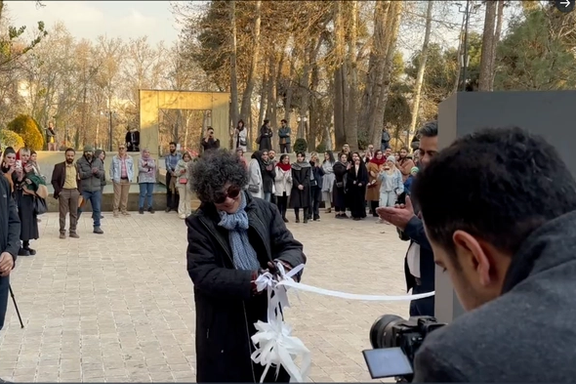
Despite the violent government crackdown on the Woman, Life, Freedom protests in 2023, Iranian women persist in defiance through unveiling, singing, and dancing in public, showing the movement's resilience.
In the past three weeks, at least three well-known female artists have made headlines by unveiling in public as an act of civil disobedience.
On December 30, renowned 62-year-old visual artist Bita Fayazi gained widespread attention on social media when she cut the ribbon to inaugurate a government-sponsored art exhibition with her scarf tied around her neck instead of covering her curly gray hair. Some other female participants at the ceremony, mostly young women, also did not cover their hair.
The Ceramic Art Biennial event was held at Niavaran Cultural Center, a bustling center of cultural activities and exhibitions governed by the Ministry of Culture and Islamic Guidance in the north of the capital.
There are no reports of ministry officials or others at the event objecting to Fayazi’s unveiling during the ceremony. She has not clarified whether it was a planned protest against compulsory hijab or an impromptu act.
The Revolutionary Guards (IRGC)-linked Fars News Agency slammed the ministry for the incident at the Niavaran Cultural Center which it described as a “de-stigmatization of unveiling”. Similarly, the Mehr News Agency, affiliated with the state-run Islamic Propaganda Organization, labeled Fayazi’s act “limitless norm-breaking”.
A few days earlier, on December 26, Goli Emami, a prominent author and translator, walked on the stage at an event organized by an Iranian publishing house at Ivan-e Shams Hall in Tehran to receive the IranKetab Literary Award for her lifetime of literary work.
Emami, 82, who received a standing ovation from the audience, was not even wearing a token scarf around her neck when she accepted her award.
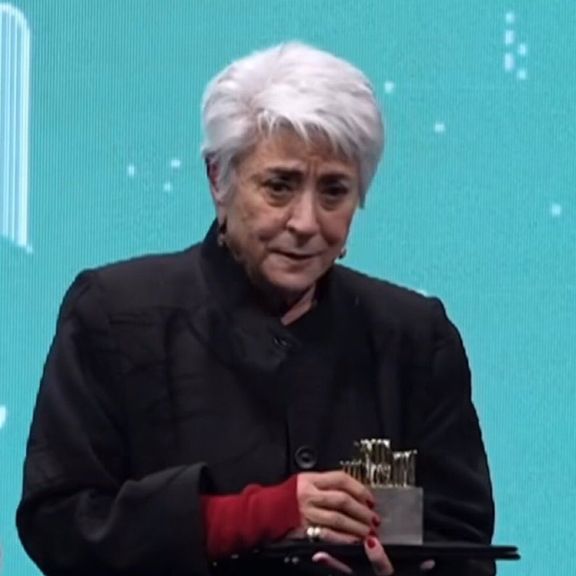
Such defiance of the compulsory hijab, even at government-sponsored events, was unimaginable before the death of Mahsa Amini in the custody of Iran's morality police in September 2022.
Amini’s death sparked several months of nationwide protests. The 22-year-old Amini was arrested on the street by morality patrols, not for defiance of hijab, but because some of her hair was showing from under her headscarf.
Since then, the number of women who refuse to wear the compulsory hijab in public has grown significantly. Social media reports indicate that seeing unveiled women, even in very conservative religious cities such as Qom and Mashhad, no longer surprises anyone.
Music and dance have become powerful tools for Iranian women to challenge the Islamic governance that has prohibited solo singing and public dancing by women for over four decades.
The hijab-free concert by singer Parastoo Ahmadi on December 12 at an empty caravansary which she streamed live on YouTube, was as groundbreaking as the one-woman anti-hijab protest of Vida Movahed, a young mother of 32, on Revolution Avenue in Tehran seven years ago, that was the first symbolic act of defiance catching the public's imagination.
At her “virtual concert”, Ahmadi, 27, not only had no head covering but also wore a black gown that revealed her bare shoulders. She was arrested and arraigned but was later freed on bail.
Female actresses have been spearheading the anti-compulsory hijab movement since the Woman, Life, Freedom protests at the cost of imprisonment, being banned from working and losing their passports.
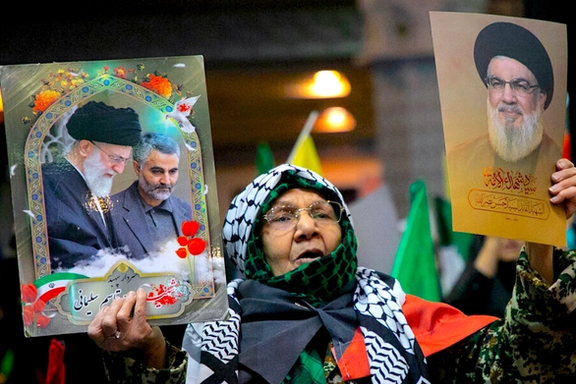
At the start of 2024, Iran appeared to be riding high: ever closer to the threshold of nuclear weapons, its regional allies harassed Israel on multiple fronts and its Yemeni acolytes the Houthis choked commercial traffic from the Red Sea.
85-year-old Iranian Supreme Leader Ali Khamenei's method of projecting power abroad and tightening his grip at home appeared to be working.
What a difference a year makes.
Tehran's affiliates Palestinian Hamas and Lebanese Hezbollah have been decimated by Israel while Islamist rebels hostile to Iran toppled Syria's Assad dynasty, a key ally.
Iran is now adrift in a decisive year, Kamran Matin, an international relations scholar at the University of Sussex told the Eye for Iran podcast.
“All of this has come together and created a very difficult environment for the Islamic Republic, all of which is even more difficult to deal with in light of the Supreme leader's deteriorating health and his age,” said Matin.
Iran’s regional and international strategy is closely tied to how it can control and shore up influence domestically.
Part of the modus operandi of the Iranian system is to blame domestic troubles on sanctions and regional conflicts, promising that investment in nuclear infrastructure and militant proxies can buttress its standing in a dangerous neighborhood.
That rationale, Matin said, has evaporated and the mystique of Iran’s regional strength has lost its luster.
There have been 54 anti-government protests in Iran since Dec 26 and Jan 2 of this year according to the Foundation for Defense of Democracies (FDD), a Washington DC-based think tank critical of the Islamic Republic.
Iran now faces a sobering realization of its diminished stature.
Race for a deal, or the bomb?
Up against deepening economic malaise as Iran’s currency slips to new lows, an energy crisis which has stoked protests and the loss of regional muscle which deterred enemies, Iran’s rulers now have limited options.
They are at a crossroads, with each path presenting huge risks: race toward a nuclear bomb as an ultimate security guarantee or make concessions to President Donald Trump and compromise the state's very raison d'etre as a scourge of empire.
The answer may hinge on Trump’s plan for Tehran, a country that according to American intelligence has allegedly plotted to kill him.
The president-elect, who has surrounded himself with Iran hawks for his next administration has suggested bombing Iran into “smithereens" for the alleged assassination attempt.
At the very least, Trump will likely apply maximum pressure and more economic sanctions on an already crippled economy, which would squeeze Iran's rulers further.
“It's unclear how Iran is able to negotiate with some sort of strength to be able to extract any concession from the United States and Western powers,” said Matin.
Iranian officials and state media Iran moot talks with Trump more eagerly, tamping down their former rhetoric of resistance and confrontation.
That could signal fear amongst the ruling elite and an understanding of their weakened position, said Matin.
In a speech last month after the collapse of Assad, Iran’s Supreme Leader Ayatollah Ali Khamenei addressed a somber crowd, blaming Israel and the United States for Iran not intervening to save its ally.
“Khamenei basically declared this impotence that American and Israelis had closed all the roads and so on and so forth,” said Matin on the speech, which was devoid of Khamenei's usual affirmations of strength.
The last standing in the Axis of Resistance - the Houthis
The Islamic Republic's woes may mean an opening for the Americans like never before that could force Iran to bargain away its regional satrapies, or face attack.
“Trump is much more willing to take on Iran, given how Israel has basically neutralized Iran's proxy forces,” said Matin on the changing tides.
Yemen's Houthis, Iran's last relatively robust military ally, will likely be a priority.
The Iran-backed group has fired drones and missiles towards Israel frequently for over a year, describing it as an act of solidarity with Palestinians in Gaza.
The Washington Institute for Near East Policy's Maritime Attack Tracker recently tallied 106 confirmed Houthis strikes on shipping since November 2023.
"There have been many more attacks recently on (the Houthis) by Israel and the US-led coalition," Matin said.
"So it may well be that they will also be pacified over time, especially if Iran itself is weakened. And maybe one of the elements in the future talks between Iran and the US would be Iran stopping its supply of advanced weapons to Houthis."
Indirect impact of Trump: a loss of Russia for Iran?
The return of president-elect Trump to the White House will likely mean yet more bad news for Iran’s Islamic establishment.
One of Trump’s first goals is to fulfill his promise to end the war in Ukraine.
If Trump follows through as he is forecasted to, Iran will lose leverage with key ally Russia, another partnership that helped it project power on the world stage.
That would lead to another major blow to the Islamic Republic.
“Russia is likely to restore its damaged relations with the West, with the United States in particular," Matin said. "That also means in turn that Russia does not necessarily need to accommodate Iran's demands or needs in order to keep Iran on board in terms of supplying drones and other weapons to Russia to be used in Ukraine.”
Ukraine's foreign ministry in early September said Russia had launched 8,060 Iran-developed Shahed drones at Ukraine since 2022, according to a Reuters report.
Syria, formerly an Iranian satellite state, was another issue binding Moscow and Tehran.
"Both of them were involved supporting Assad regime. Neither of them are there anymore. What really binds Iran and Russia together is this wider tension each of these countries have with the West, with the United States,” Matin said.
It seems with Iran's dwindling influence, domestic unrest and battered allies throughout the region, 2025 is poised to be a decisive year for Tehran.
To watch the full Eye for Iran episode with Kamran Matin, click on YouTube or listen on Spotify, Apple, Amazon, Castbox or any other major podcast platform.
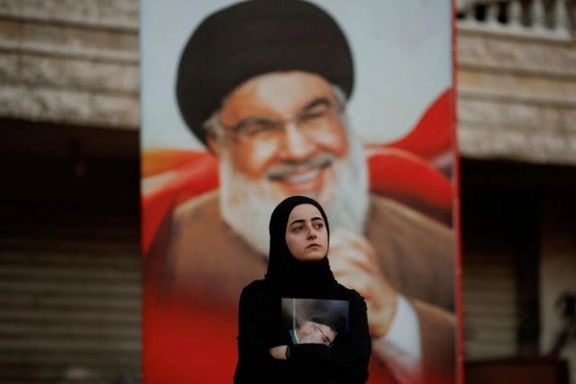
Following reports of an Iranian diplomat refusing to have his bag searched at Beirut Airport, Lebanon’s Foreign Ministry announced later that the funds in his possession were intended for embassy expenses and were eventually cleared for entry.
On January 3, the Lebanese Foreign Ministry stated that it had received an official note from the Iranian Embassy in Beirut and approved the entry of the diplomat’s bags under the Vienna Convention on Diplomatic Relations.
Iranian media also reported that the Iranian Embassy sent a "clarification note" to the Lebanese Foreign Ministry, explaining that the two diplomatic suitcases in question contained "documents and cash for operational expenses of the embassy."
Al-Alam, a news network affiliated with Iran, reported that tensions arose at Beirut Airport when security officials attempted to inspect the bags of an Iranian diplomatic delegation, prompting a standoff.
The network claimed that after the incident, dozens of Shia youths affiliated with Hezbollah on motorcycles headed to the airport, leading the Lebanese Army to block roads to the area.
The incident, the third of its kind since November, follows a series of setbacks for Iran's all Hezbollah in its confrontation with Israel, alongside a decline in its political and military influence in Lebanon. It remains unclear whether Lebanese authorities are genuinely committed to halting the flow of Iranian cash and weapons to Hezbollah or if they are taking high-profile actions to signal to the United States and Israel their intent to curb Tehran's ties with the group.
Ebrahim Rezaei, spokesman for the Iranian parliament's National Security Committee, on Friday urged the Lebanese government to avoid actions influenced by Western countries, warning that the Beirut airport incident is under parliamentary scrutiny.
"The Islamic Republic of Iran has always stood by the Lebanese people and government. We urge the Lebanese government to avoid any questionable actions, particularly under the influence of Western countries, given the region’s sensitive circumstances," Rezaei said.
Beirut Airport security officials had, for the second time in a week, inspected an Iranian plane and the belongings of all passengers on Thursday, January 2. Lebanese authorities had warned that any cash found on planes would be confiscated by the government.
According to reports, Lebanese officials informed Iranian representatives that any suspicious shipments arriving in Lebanon in the future would be seized.
The Al-Hadath network, citing Western sources on Thursday, claimed that Iran was attempting to transfer millions of dollars to Hezbollah through Mahan Air flights from Tehran to Beirut.
Hezbollah’s Deputy Secretary-General, Naim Qassem, previously stated in December that $50 million had been distributed to 233,500 registered displaced Lebanese households. He noted that if aid were extended to the entire population, the total would reach $77 million, adding that the funds had been provided by Iran.
According to Qassem, Lebanese families whose homes were completely destroyed received $14,000 for furniture and a year’s rent if they resided in Beirut or southern suburbs, and $12,000 if they lived outside the city.
Reports of cash transfers to Iran’s proxy groups have surfaced in the past. For example, in 2006, Mahmoud al-Zahar, a senior Hamas official, revealed on Al-Alam TV that during a visit to Tehran, he received several suitcases containing $22 million from Qassem Soleimani, the late commander of the IRGC’s Quds Force.
In 2019, China’s Xinhua News Agency reported that during an event preceding "Quds Day" in Gaza, Iran distributed $651,000 to Palestinian families in the territory.
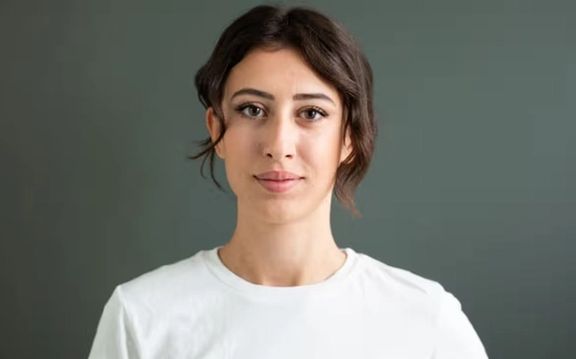
Tehran made clear to Rome that the freedom of an Italian reporter detained in Iran depends on Italy's release of an Iranian arrested at Washington's behest, a source familiar with discussions between the journalist's family and the Italian government told Iran International.
Iran's demand has not been previously reported and had been left unsaid by senior Italian officials, including the prime minister, eager for a swift end to the crisis.
Newspaper journalist and podcaster Cecilia Sala, 29, was arrested on unspecified charges last month and placed in solitary confinement despite working in the country on a valid press pass.
Mohammad Abedini Najafabadi, 38, was arrested by Italian authorities at the behest of the United States for his alleged role in providing technology used to kill three US soldiers in a drone attack in Jordan.
Speaking to Iran International on condition of anonymity, a source familiar with discussions between the Italian government and Sala's family said Iran conveyed its terms for her release to Italy’s ambassador in Tehran.
Iran, the source said, is prepared to free Sala “on humanitarian grounds" if the Italian government drops the extradition proceedings against Abedini and grants his release from Milan's brooding La Opera prison.
On Friday, Sala's parents issued an statement calling on the media to observe a press blackout, citing the delicate nature of efforts to secure her release.
"To try to bring her home, our government has mobilized to the maximum, and now, in addition to the efforts of the Italian authorities, confidentiality and discretion are also necessary,” Italian media quoted her parents, Elizabeth Vernoni and Renato Sala, as saying in a statement.
“The stage we have reached is, however, very delicate, and the feeling is that the great media debate on what can or should be done risks prolonging the times and making a solution more complicated and distant," they added.
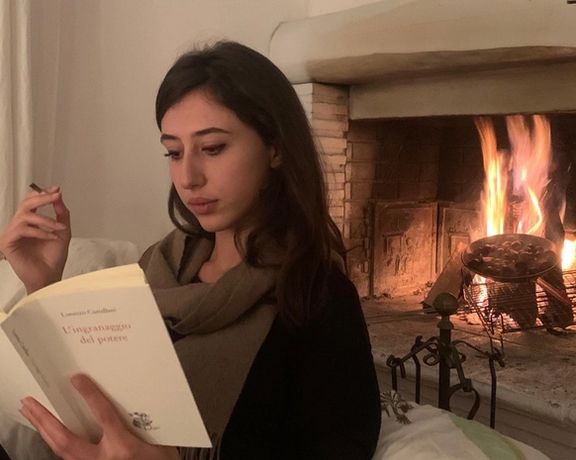
The Italian foreign ministry has demand Sala's “immediate release ... (and) full assurances regarding her conditions of detention.”
Sala told her family in New Year’s Day calls that her prescription glasses had been confiscated, her cell is barely longer than her own height and that she is forced to sleep on a blanket spread on the floor, according to Italian media.
A package of basic necessities, she added, including a sleeping mask, cigarettes, a book and a sweater—assembled by the Italian embassy was never delivered to her, despite Iranian officials having told Italian diplomats she would receive it.
Her food, mainly dates, is passed to her through a slot in the cell door and therefor she rarely sees her jailers, she reportedly added.
Accusation withheld
On December 30—11 days after Sala’s detention—Iran’s Ministry of Culture and Islamic Guidance issued a statement confirming Sala had been arrested ten days earlier for “violating the laws of the Islamic Republic of Iran”.
Italian authorities believe the absence of any formal charges against Sala, the source told Iran International, while highlighting the arbitrary nature of her detention, could also mean Iranian officials are deliberately withholding an official accusation.
This would allow them to either release her easily if Italy cooperates on Abedini’s case, otherwise the ambiguity could empower Tehran to charge Sala with more serious offenses and impose a heavy sentence in retaliation.
At the same time, the Italian Embassy in Tehran has announced that Iran’s foreign ministry provided a list of Iranian lawyers to Paola Amadei, Italy’s ambassador, so Sala’s defense counsel can be chosen from among them.
The move belatedly grants her case the appearance of a genuine legal proceeding on par with Abedini’s in Italy.
“Complex" case
On December 20, three days after Abedini was arrested at Milan Airport, he opposed his extradition in his first court appearance. The judge issued a temporary detention order, starting a legal process that could take up to two months.
That same day at around 12:30 PM—less than an hour after the Milan court hearing ended and Abedini’s detention order was issued—Sala was arrested in Tehran.
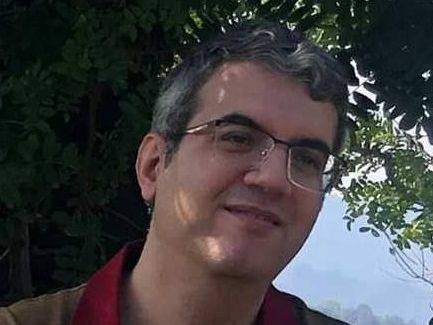
Given that Sala’s presence in Iran was lawful and that the Ministry of Culture was aware of her itinerary, the timing was the first clear indication the cases are linked.
Italian authorities’ official statements, however, were careful not to do so.
After a week of silence about Sala’s detention—the news of which was kept from the media and public—Italian government officials have dwelled only generally on the complexity and sensitivity of her case.
“This case is complex, but we are using all possible channels of dialogue to obtain Sala’s freedom,” Italian Prime Minister Giorgia Melon said, emphasizing her government’s tireless efforts to secure Sala’s swift release.
Italian Foreign Minister Antonio Tajani too shied away from mooting an Iranian demand for a swap, saying, “We are working to resolve this complicated matter and ensuring that Cecilia Sala is held under the best possible conditions.”
The third party in this legal and diplomatic triangle—the United States, Italy’s close ally and a longtime adversary of the Islamic Republic—took a more explicit stance.
“Cecilia Sala’s detention in Tehran occurred after an Iranian national accused of smuggling drone parts was arrested in Italy," a US State Department spokesperson told La Repubblica newspaper.
"We reiterate our call for the immediate, unconditional release of all individuals who are arbitrarily and unjustly detained in Iran and are being used as political leverage.”
Referring to mounting public pressure for Sala's release, the source told Iran International that Italian officials assured her family they are working without stint.
“They have not explicitly stated they will agree to a swap demanded by Iran,” the source said, “but they have made it clear that all options are under consideration and that they will bring Sala home.”
Italy denies house arrest
While the Italian government still believes that any public political stance or diplomatic standoff with the Islamic Republic might worsen an already difficult negotiation, the country’s judiciary appears unlikely to show leniency.
Tehran may have viewed acceptance of Abedini’s lawyer’s request for a transfer to house arrest as a sign of goodwill from Italy.
The United States Justice Department strongly opposed any form of house arrest in a letter to the Court of Appeal in Milan.
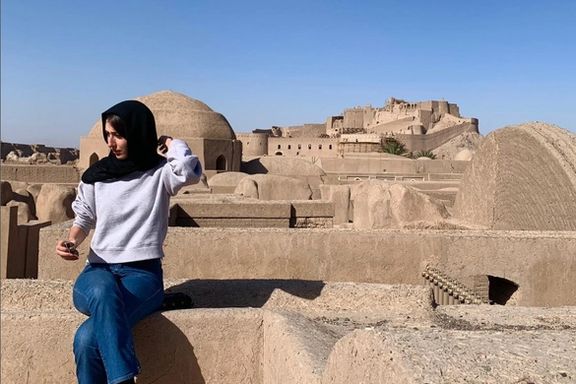
Milan’s chief prosecutor, Francesca Nanni, told the court on Thursday she opposed placing Abedini under house arrest or granting him conditional release, citing inadequate assurances from the Iranian consulate that he would not attempt to flee.
The prosecutor’s recommendations are non-binding and the judges will make their decision in a hearing whose date is due to be announced on Friday.
A notorious precedent is the case of Artem Uss, a Russian businessman and son of a Russian oligarch,who fled Italy in 2023 after being placed under house arrest—despite a US extradition requests—causing a public scandal for the Italian judiciary.
Political options
Italian law allows its justice minister to intervene and halt an extradition and order the release and expulsion of a detainee.
But such a move would be politically sensitive, given that the Milan prosecutor’s office is currently acting on behalf of the justice ministry by insisting on Abedini’s continued detention, and Washington accuses him of abetting terrorist enemies.
Yet if this remains the only route to free Cecilia Sala—given the Islamic Republic’s record of exchanging detained foreign nationals for prisoners and political or economic concessions—Rome could plausibly concede.
The gravity of the matter has prompted Prime Minister Giorgia Meloni and her deputy, Alfredo Mantovano—who oversees the nation’s intelligence agencies—to lead the behind-the-scenes efforts to secure Sala’s freedom.
Sala’s family is unmoved by officialdom's tactful negotiations so far, the source told Iran International. They have made it clear in meetings with government officials that they will accept no justification for Sala remaining behind bars.

Former lawmaker Heshmatollah Falahatpisheh dismissed Tehran’s attempts to signal readiness for talks with the incoming US administration, arguing that Iran is not a top priority for Donald Trump.
Iranian media on Friday quoted Heshmatollah Falahatpisheh as saying, "Trump is focused on domestic issues, with most of his time spent negotiating with business owners and corporate leaders in the United States. Therefore, Iran should not be viewed through the lens of players like Netanyahu. It is Netanyahu who is trying to make Iran Trump’s top priority in the Middle East."
Falahatpisheh, former chairman of the Iranian parliament's foreign relations committee during the 2010s, is a prominent and authoritative voice among Tehran’s commentators who are permitted regular media appearances. Known for his more independent and pragmatic views on foreign policy, he often contrasts with others who tread more cautiously in their remarks.
His remarks came in the wake of a call by one of President Masoud Pezeshkian's aides, who recently advocated direct negotiations with Trump, emphasizing the need for a new foreign policy to strengthen Iran’s international position.
Ali Abdolalizadeh, who headed Pezeshkian’s election campaign, said on December 31 that "We must negotiate with Mr. Trump. The country's issues cannot be left unresolved, and the entire establishment has also reached the conclusion that direct negotiations are necessary."
Falahatpisheh in his remarks emphasized that “Based on the historical experience with Trump and his associates, his close circle consistently takes a hardline stance against Iran, and Trump’s own history is defined by his policy of maximum pressure.” However, he argued that at this juncture the issue of Ukraine is the priority for the president-elect.
He voiced his opposition to attempts by certain Iranian officials to make conciliatory remarks directed at the incoming US administration. “Proactively seeking negotiations with the United States cannot safeguard Iran's national interests. I see that some of Mr. Pezeshkian's associates are talking about engaging in dialogue with Trump and are attempting to send unreciprocated signals. These very signals reflect weakness in Iran's position.”
Falahatpisheh emphasized that Iran's primary focus in the coming month should be on strengthening its national security. He highlighted the importance of addressing domestic discontent, particularly by tackling economic challenges, as a critical first step.
"I believe Trump’s approach toward Iran will involve reviving the maximum pressure policy while also presenting a proposal for negotiations. Naturally, the extent to which this proposal warrants consideration will determine how Iran shapes its foreign policy in response," Falahatpisheh said.